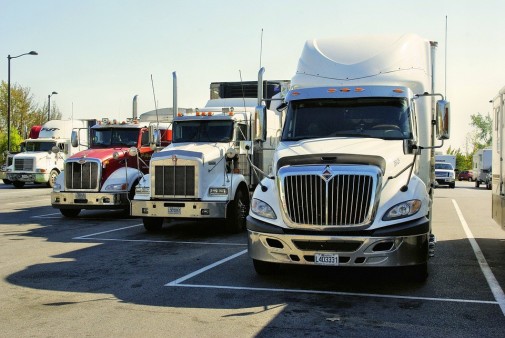Electric Semi-trucks don't make economic sense. Not Yet!
Jan 18, 2024 in Trucking IndustryIn recent years, there has been a significant push towards greener and more sustainable transportation solutions, with electric vehicles (EVs) at the forefront of this movement. While electric cars have gained popularity, the adoption of electric semi-trucks is a topic that demands careful consideration, especially when it comes to economic feasibility. In this blog post, we'll explore some of the key reasons why electric semi-trucks may not make economic sense.
-
High Initial Costs: One of the primary barriers to the widespread adoption of electric semi-trucks is the substantial upfront investment required. Electric vehicles, including semis, tend to have higher manufacturing costs compared to their traditional counterparts. The expensive batteries used in electric trucks contribute significantly to their overall price, making them less economically attractive for fleet operators, especially those operating on tight budgets.
-
Limited Range and Charging Infrastructure: The long-haul nature of semi-truck operations requires vehicles with extensive range capabilities. While strides have been made in battery technology, electric trucks still face challenges in achieving the same range as diesel trucks on a single charge. Additionally, the current charging infrastructure for electric vehicles may not be sufficient to support the demands of a large fleet of electric semi-trucks, particularly in remote or underserved areas.
-
Weight and Payload Constraints: Electric truck batteries are heavy, and this weight can impact the overall payload capacity of the vehicle. The more weight a truck carries, the more energy it requires to move, thereby reducing the efficiency of the electric system. This creates a trade-off between the weight of batteries and the amount of cargo a semi-truck can carry, potentially making electric trucks less economical for certain types of freight transportation.
-
Depreciation and Resale Value: The rapid advancements in battery technology can lead to concerns about the depreciation and resale value of electric semi-trucks. As newer, more advanced models are developed, older electric trucks may become obsolete faster than their diesel counterparts, potentially resulting in higher depreciation rates and reduced resale values.
-
Maintenance Costs and Downtime: While electric vehicles generally require less maintenance than traditional internal combustion engine vehicles, the maintenance costs associated with electric semi-trucks can still be significant. Specialized technicians and equipment are needed for repairs and maintenance, potentially leading to higher downtime and operational disruptions.
- Environmental Impact of Battery Production: It's crucial to consider the environmental impact associated with the production of electric vehicle batteries. While electric trucks are often touted as environmentally friendly, the manufacturing process of batteries involves the extraction and processing of rare minerals, such as lithium and cobalt. Mining these resources can lead to deforestation, habitat destruction, and water pollution, raising concerns about the overall environmental footprint of electric vehicles. Until sustainable and eco-friendly battery production methods are widely adopted, the environmental benefits of electric semi-trucks may be offset by the negative consequences of battery manufacturing.
- While electric semi-trucks hold promise for a more sustainable future in the transportation industry, their economic viability remains a complex issue. The high initial costs, limited range, weight constraints, and concerns about depreciation and maintenance costs present challenges that need to be addressed before widespread adoption can occur. As technology continues to advance and infrastructure improves, the economic landscape for electric semi-trucks may change, but for now, a careful evaluation of the costs and benefits is essential for fleet operators considering the transition to electric trucks. When evaluating the environmental impact of electric semi-trucks, acknowledging that the current state of battery production poses challenges to the goal of solving environmental issues



